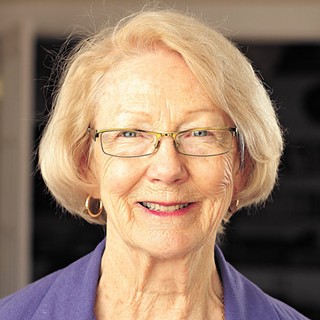Can a Democrat win in redder-than-red Idaho? Will the party lines that favor Republicans hold fast or fade away? What’s going on out there to make Idaho voters want to change governors?
Typically around here, the hill is a tough one for Democrats to climb. But this election year voters are grumbling about people in high places. Incumbents are falling off the political trees like cherries in a hailstorm — the more experience they have, the more a part of the problem they are perceived to be. The “throw the rascals out” mood of the electorate is so strong that any incumbent has to face the November general election with fear and trepidation.
Gov. Butch Otter is no exception. As lieutenant governor, Butch Otter presided over the Idaho Senate during 10 of the 12 years I served in Boise. He wielded a quick gavel and knew his Robert’s Rules, but I never considered him a visionary. His record in office has proven me right on that score.
If you ask any Idaho resident to name one thing Butch Otter has done for Idaho, chances are they can’t come up with anything. And the Idaho Statesman, generally an Otter supporter, stated it is “fair to describe Otter’s record as lackluster.”
Furthermore, I hear a lot of talk from folks who are unhappy Idaho is now in a lawsuit against the federal government, asking to be excluded from implementation of the national health care reform act. Otter signed the Idaho Health Freedom Act with great fanfare, even though lawyers suggest the suit is a waste of taxpayer money. Equally unsavory is the recognition that, under Butch Otter’s leadership, Idaho public schools will receive $128 million fewer dollars in the coming year — that’s a 7.5 percent decrease to budgets already cut to the bone.
Perhaps those accomplishments explain why the sitting governor only garnered 54.6 percent of the votes in his own party’s primary against five snapping-at-his-heels challengers.
Or maybe it’s just that Butch Otter is getting stale.
He served in the Idaho House of Representatives for six years in the ’70s; he served as lieutenant governor for 16 years; he then moved to Washington, D.C., in 2001 to take the Idaho First Congressional District seat in Congress; then he came back to Idaho, and to the governor’s office, in 2006. It all adds up to 30 years in elected office. On the one hand, that’s a lifetime of service. On the other hand, that’s a long, long, long time.
In recent years in Idaho, voters have simply penciled in the bubble by whichever candidate has the big “R” next to his or her name. I’m hoping Keith Allred can help change that the way Walt Minnick did in 2008. Allred’s a fifth-generation Idahoan who has lived and learned on both coasts; he’s equally comfortable in a boardroom, a classroom, a legislative hearing room or even on a horse. (While growing up, Allred spent summers working on the family cattle ranch.)As a mediator all over the world, Allred has made a career of bringing people and factions together. He taught and conducted research on negotiation and conflict resolution for seven years as a professor at Harvard’s Kennedy School of Government. Before that, he put in a stint teaching negotiation at Columbia University.
In 2003, Keith and his wife Christine left their teaching positions at Harvard to return to the “real” world of the West. They moved books and baggage and their new daughter, Anna, to a ranch they purchased near Eagle, Idaho. (They’ve since added two more kids; a boy, Dan, and another girl, Cate.)
Allred is a very different kind of candidate; he wants to bridge the oceans-wide partisan divide, not try to exploit it. While he is running on the Democratic side of the ticket, his campaign co-chairs are former Gov. Cecil Andrus (a Democrat) and longtime state Sen. Laird Noh (a Republican).
“I believe that once you become acquainted with Keith, regardless of partisan affiliation or the lack thereof, you, too, will not want to let this opportunity slip away,” Noh said at the time of Allred’s announcement.
My husband Scott and I were introduced to Keith Allred shortly after his return to Idaho. We are part of the non-partisan coalition he gathered as he founded the Common Interest, a grassroots effort to counter what he calls the “excessive” influence of special interests on the political decision making in Idaho.
The Common Interest currently has 1,675 members across Idaho. Each year, members have chosen the issues the organization will pursue. Together with the members, Allred has researched and testified before the Legislature on issues of transportation funding, election reform, overcrowded prisons, K-12 education funding and more. Allred has quickly built the Common Interest into an organization with certified political clout.
If you want to vote for a person instead of a party, Allred is your man. What I like most is he is intent upon governing by applying the principles he has tested in his Common Interest group. By relying on collaboration and careful study instead of the shortterm pressures of partisanship and the biased views of special-interest lobbyists, Allred wants to find practical, common-sense solutions to Idaho’s problems. Or, as his wife Christine put it in a recent speech to supporters: “We’re offering Idahoans an alternative — a government that can actually be about them.”
Mary Lou Reed is a former Democratic state senator from Coeur d’Alene.






















